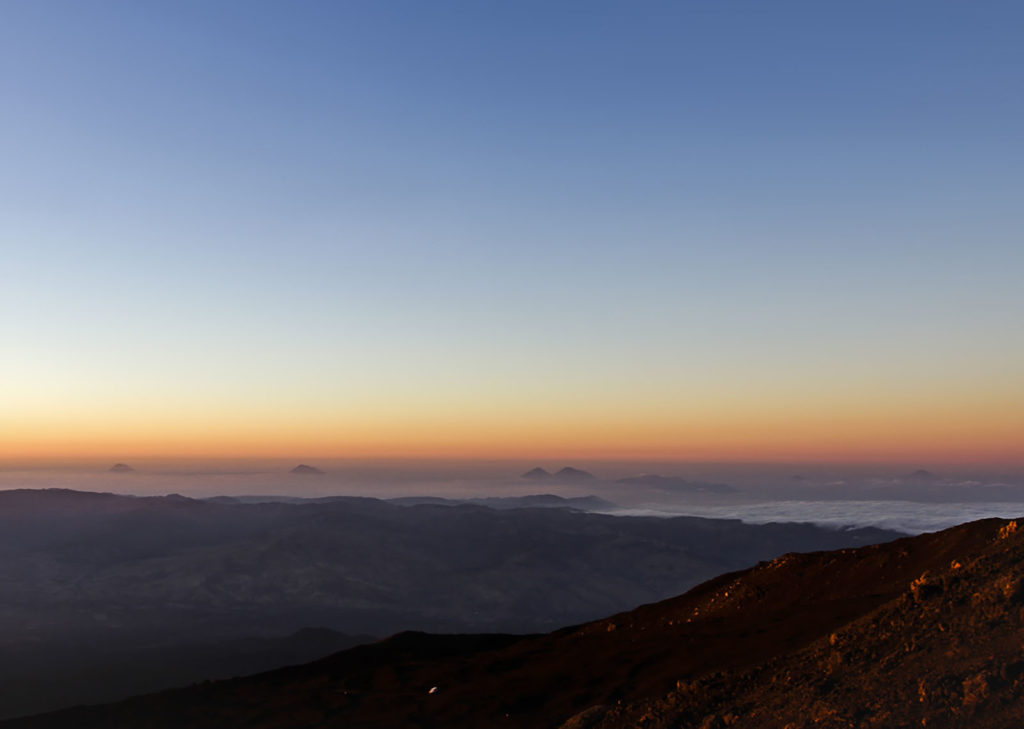In the upper northern flank of Etna, at 2900 metres above sea level, is the Valle del Leone. It is a depression, running east to west, that overlooks the larger Valle del Bove, where you get one of the best views of the volcano.
In fact, it is the best place to observe the northern border of the Valle del Bove, formed entirely of the volcanic products of the Elliptical, which developed between 60 and 15,000 years ago.
Changing our line of vision just slightly, the Valle del Bove can be seen in its entirety. A breathtaking sight considering that from over 2900 metres above sea level, you can easily see the sea at a very short distance!
If we move our gaze slightly clockwise again, we see something whose important presence can be sensed. At this altitude, when the summit craters of Mount Etna, at almost 3400 metres above sea level, degas at the same time, they give us a clear perception of just how alive the volcano is under our feet. If we head north, we find something unexpected: an incredible panorama of all of northern Sicily and the entire Aeolian archipelago that nourishes the soul.
Finally, concluding our 360° tour, we notice a house with a small dome: this is the historical
Etna Observatory
, one of the highest observatories in the world on an active volcano, recently restored by the Italian National Institute of Geophysics and Volcanology.
